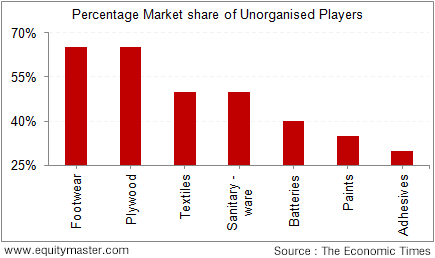India's Third Giant Leap
This Could be One of the Biggest Opportunities for Investors
- Home
- Todays Market
- Indian Stock Market News January 16, 2017
Sensex Stays Flat; IT Stocks Drag Mon, 16 Jan 01:30 pm
After opening the day on a flat note, the Indian share markets have continued to remain dull and are trading marginally above the dotted line. Sectoral indices are trading on a mixed note, with stocks in the realty sector and metal sector witnessing maximum buying interest. Stocks in the IT sector are trading in the red.
The BSE Sensex is trading up by 61 points (up 0.2%) and the NSE Nifty is trading up 14 points (up 0.2%). Meanwhile, the BSE Mid Cap index is trading up by 0.3%, while the BSE Small Cap index is trading up by 0.6%. The rupee is trading at 68.18 to the US$.
The Goods and Services tax (GST) council is set to convene for its ninth meeting today as the central government looks to break the deadlock between the centre and the states regarding various issues delaying the GST rollout.
A fortnight ahead of the start of the Budget session of Parliament, GST Council will try to find the resolution to issue of administrative control between the centre and states, as well as definition of coastal states.
Some states are seeking administrative control over all taxpayers who have an annual revenue threshold of less than Rs 15 million and equal division between the Centre and the states for those above this level.
The Central government is unwilling to yield to this demand as it will leave it only a small taxpayer base of around 700,000 to administer. The other option being discussed is to only divide the small pool of taxpayers that are likely to be audited under the GST.
Resolution of this issue will be crucial to finalize the integrated GST bill that deals with taxation of inter-state movement of goods.
The issue of taxation powers of states to levy taxes in territorial waters up to 12 nautical miles is also set to be discussed in the meeting today after it was referred to the law ministry for legal opinion in the last meeting.
Finding a middle path to these major issues will go a long way in finalizing the rollout date for this ambitious tax reform. The government was targeting to roll out GST from 1 April 2017 but with a delay in finalising supporting legislations, it is likely the deadline will be missed.
The date for the rollout of the GST is likely to be announced in today's meeting. GST, when implemented will bring in a host of regulations to enable transparency in the tax regime.
This will no doubt lead to added costs for implementation of regulations. Unorganized players may bear the brunt of added costs of compliance and may find it difficult to comply with the GST norms and compete with the well-established organised players.
Sectors that can benefit from GST
https://www.equitymaster.com/5minWrapUp/images/2015/01102015- -equitymaster.gif
The implementation of GST is bound to bring more companies under the new tax regime, thus providing a level playing field to organized players forming part of sectors having a high proportion of the unorganized segment.
Moving on to news from the Oil & Gas sector. According to a leading financial daily, the government is set to announce that Public sector oil marketing companies (OMCs) will bear the entire Merchant Discount Rate (MDR) levy on credit/debit card transactions at petrol pumps.
This decision puts an end to the controversy surrounding the MDR levy by banks on debit card credit card transactions at fuel pumps post demonetisation. While the government cannot mandate private OMCs to follow course, it expects that they too will implement the same to protect market share.
MDR is an interchange fee paid to the bank that issues the credit or debit card used in each transaction. This charge was passed on to consumers but post-demonetisation, the government, in a bid to promote digital payments, waived it till December 30. Banks, after that date, decided to pass on the MDR to petrol pump operators.
According to the All India Petroleum Dealers' Association (AIPDA), banks charged 1% on all credit card transactions and between 0.25% and 1% on debit card transactions at fuel outlets.
The issue emerged when the AIPDA refused the levy of the MDR by banks from 9 January, citing reduced margins. The fuel retailers then immediately decided not to accept any debit or credit cards for fuel purchases.
Even though the government decided to incentivise plastic transactions through a 0.75% discount on fuel purchases, a corresponding MDR levy on them strained margins for dealers. As the sales from cash started shifting to plastic money, the dealers started feeling the pressure on their margins because of the additional levy.
The transition to digital transaction has been almost immediate. Sales through this mode increased to almost 25% from 10% of the total sales earlier.
Additional burden of MDR will surely strain profits of OMCs in the short run. It would be interesting to see how the OMCs cope up with absorbing the costs of the MDR levy.
For information on how to pick stocks that have the potential to deliver big returns, download our special report now!
Read the latest Market Commentary



Equitymaster requests your view! Post a comment on "Sensex Stays Flat; IT Stocks Drag". Click here!
Comments are moderated by Equitymaster, in accordance with the Terms of Use, and may not appear
on this article until they have been reviewed and deemed appropriate for posting.
In the meantime, you may want to share this article with your friends!